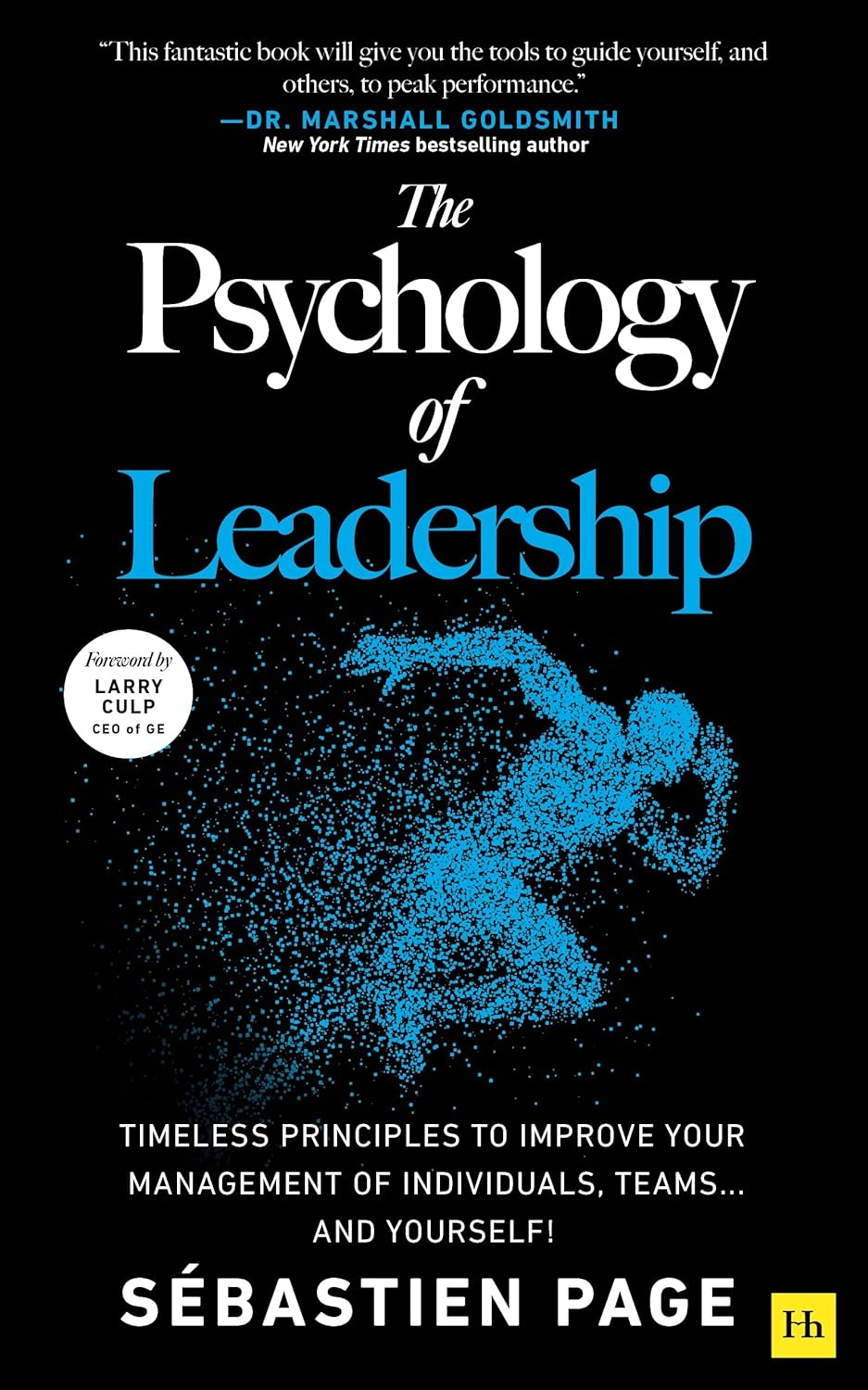Metrics can drive success, but when taken too far, they can cloud judgment and derail leadership. In today’s episode of The Small Business Show, we’re joined by Sébastien Page, head of Global Multi-Asset and CIO at T. Rowe Price, Fortune 500 executive, and author, to discuss his latest book The Psychology of Leadership and the downside of becoming overly obsessed with goals and metrics.


The Psychology of Leadership
Goal-induced blindness
Metrics and measurable goals are important. They provide motivation and serve as a gauge for success. But that motivation can spiral into obsession, which Page calls “goal-induced blindness.” This happens when leaders become so fixated on hitting specific targets that they lose sight of broader, more critical issues like health, ethics, or relationships.
In business, that might look like overlooking low team morale or compromising integrity just to hit quarterly numbers. In life, it can lead to burnout and strained personal connections.
A striking example of this concept is found on Mount Everest. Psychologists often point to the mountain’s death toll, over 300 fatalities and a 4% death rate, as a metaphor for goal-induced blindness. Climbers, focused solely on reaching the summit, often walk past frozen bodies of other climbers who’ve succumbed instead of turning back when conditions become too dangerous.
Page says the best way to combat goal-induced blindness is to remain open to feedback from consumers, peers, and employees. When the feedback suggests the goal is no longer feasible, it’s time to step back and pivot.
Learning to quit
One of the most underrated leadership skills is knowing when to quit. It sounds counterintuitive, but quitting, in the proper context, is a marker of a forward-thinking, adaptable leader.
Netflix offers an excellent example of skillful quitting. The company invested millions into its DVD distribution model, but when the time came, it quit and shifted to streaming. That move transformed it into a global giant, operating in over 19 countries with over 300 million paid subscribers.
Success lies in future-oriented thinking, not clinging to past investments. Letting go allows businesses to be more agile, innovative, and competitive.
Dangers of being outcome-obsessed
Page makes it clear: outcomes matter. that outcomes are important. But when the drive for results overrides ethics, it creates a breeding ground for dishonesty and scandal.
Consider Volkswagen’s emissions scandal, commonly referred to as “Dieselgate.” The company installed software to cheat emissions tests, a dishonest decision rooted in outcome obsession. The ripple effects of the scandal are still being felt to this day, as Germany recently called for jail time for four of the managers involved.
Another example is Wells Fargo, where employees, pressured by aggressive sales goals, create fraudulent accounts without customer consent. The fallout was massive, costing the company millions and damaging its reputation.
Leaders must not allow themselves to travel along this path of destruction.
Redefining success and letting go of ego
While measurable success is important, not every goal should be quantifiable. Some of the most valuable objectives, such as improving communication, skill mastery, or process improvement, can’t be documented on a spreadsheet. Leaders must learn to redefine success and shift their mindset away from an ego-driven perspective towards mastery.
Take an automotive factory: hitting a production goal matters, but refining the process is equally essential. The latter is more challenging to measure, but it sustains long-term performance.
It’s human nature to have an ego mindset. Everyone wants to be successful and win. However, shifting from an ego-driven mindset to a mastery mindset builds resilience. Leaders focused on mastery are more likely to adapt, grow, and recover from setbacks more quickly than others.
"You need to bring some mastery orientation into your business and whatever endeavor you do in life." – Sébastien Page








